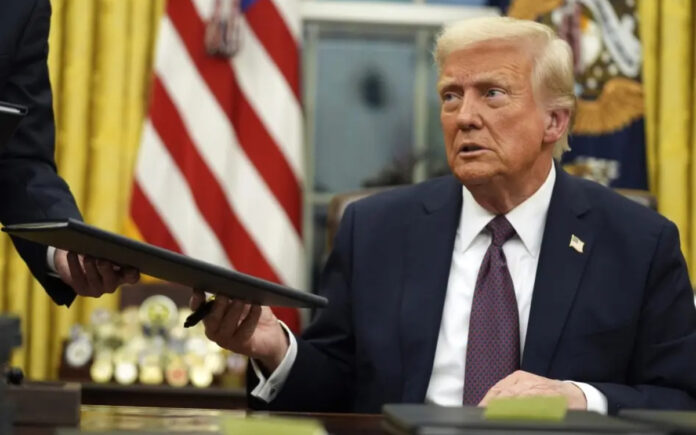Washington: U.S. President Donald Trump announced on Sunday that he would sign an executive order on Monday morning aimed at reducing prescription drug prices to align with those paid in other high-income countries. Trump indicated that these prices could be as much as 30% to 80% lower than current U.S. costs.
In a post on Truth Social, Trump revealed his intention to implement a policy known as “most favored nation” pricing, or international reference pricing. The strategy involves setting U.S. drug prices in line with the lowest prices paid by other nations. Trump has emphasized that this plan seeks to address the significant price disparity, as the U.S. is known for paying the highest drug prices globally—often nearly three times higher than those in other developed countries. Although Trump has not disclosed specific details on how the pricing changes will be enacted, he remains committed to reducing this gap.
“They will rise throughout the world in order to equalize and, for the first time in many years, bring FAIRNESS TO AMERICA!” Trump stated in his post.
“I will be instituting a MOST FAVORED NATION’S POLICY whereby the United States will pay the same price as the Nation that pays the lowest price anywhere in the world,” he added.
The pharmaceutical industry has long anticipated such an executive order, with sources familiar with White House briefings noting that it is likely to target the Medicare health insurance program. Drug industry lobbyists, speaking under anonymity, said that the order may apply to a wider range of drugs beyond those currently included in President Joe Biden’s Inflation Reduction Act, which allows Medicare to negotiate prices for certain medications.
Also Read | Increased Russian Military Presence Near Finland Raises NATO Concerns
The Inflation Reduction Act allows Medicare to negotiate prices for ten specific drugs, with price adjustments slated for next year, and additional medicines are set to undergo negotiations later this year.
Alex Schriver, a spokesperson for the Pharmaceutical Research and Manufacturers of America (PhRMA), voiced opposition to the plan, emphasizing that “Government price setting in any form is bad for American patients.”
Also Read | Operation Sindoor Forced Pakistan to Seek Truce, Says Indian Source
This is not the first time President Trump has attempted to tie U.S. drug prices to those in other countries. A similar initiative during his first term was blocked by the courts. At that time, the administration projected that the plan would save U.S. taxpayers over $85 billion over seven years, significantly reducing the nation’s annual expenditure on prescription drugs, which exceeds $400 billion.



